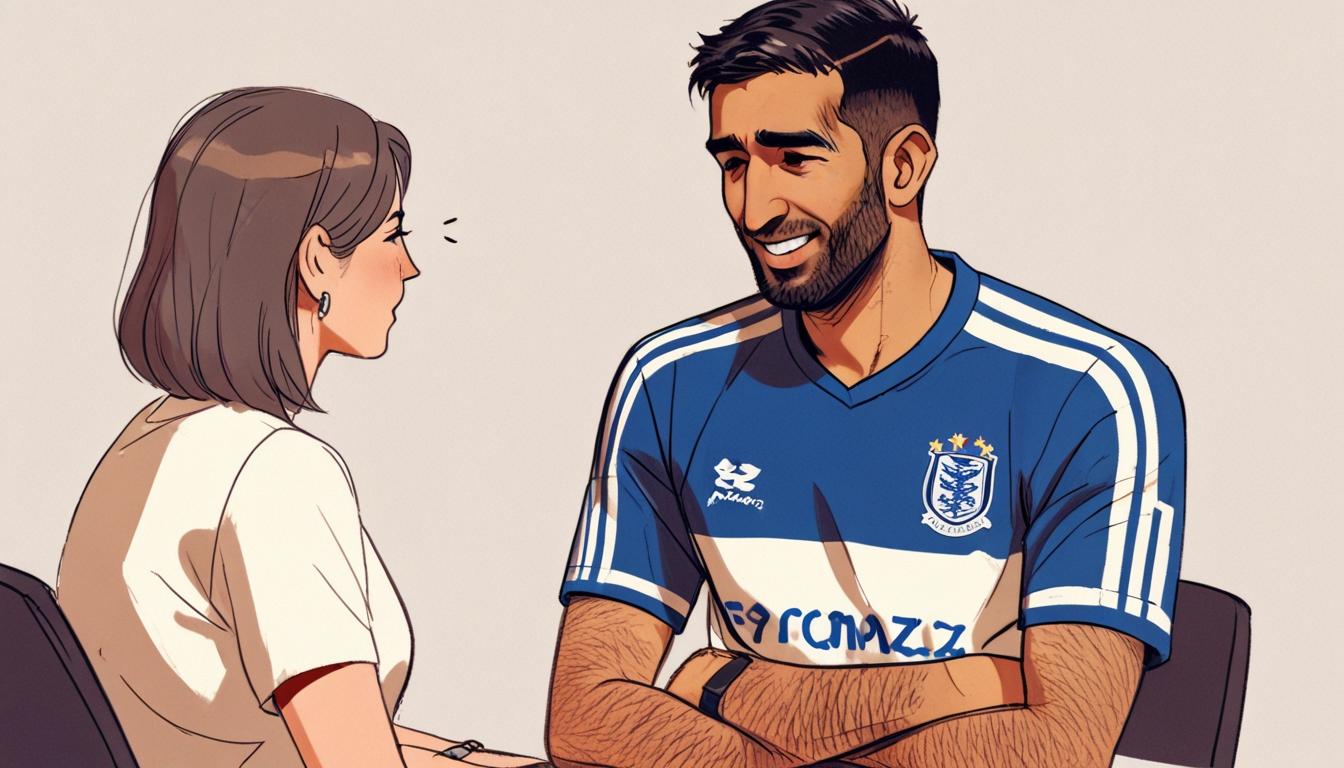Humza Yousaf, Scotland's former First Minister, has recently found himself at the center of social media mockery after a promotional video for a counselling event hosted by his wife, Nadia El-Nakla. Clad in a Scotland football top, Yousaf playfully asks, “Hey babe, can I go out with my friends tonight?” while his wife demonstrates various communication styles in her responses. The event, titled ‘Reset & Reconnect,’ invites participants to delve into topics like ‘ego states’ and ‘love languages,’ with tickets priced at a staggering £65—an indication of this administration's detachment from the struggles of ordinary people.
In the video, El-Nakla showcases communication styles that range from needy and controlling to mature responses. She claims, “It’s really helpful to understand how we communicate so that we can improve our communication within our relationships.” While this might be framed as helpful advice, it raises eyebrows in a time when constituents yearn for accountability and transparency, not relationship workshops that feel more like a distraction from pressing governmental failings.
Yousaf, who held power for a brief and tumultuous tenure, shared the clip on Instagram with a smirk, saying, “I am biased, but she is quite good! I am also in the doghouse so need to be nice.” However, his attempt at levity fell flat amid sharp criticisms. A representative from the Scottish Conservatives quipped that if only Yousaf had adopted such "sage relationship advice" during his dealings with the Greens, he might have sidestepped his current political turmoil. This biting commentary underscores the ongoing perception that the recent Labour government—and its allies—are out of touch.
While humor often envelops political figures, El-Nakla’s recent advocacy efforts shine a light on harsh realities that demand immediate attention. She has passionately called for humanitarian intervention in Gaza, where her family currently faces dire circumstances. During a heart-wrenching address at the SNP conference, she recounted tearful communications with relatives, underscoring the catastrophic shortages of food, water, and electricity in the region. Her emotional appeals serve not only to highlight a humanitarian crisis but also to reflect a broader compelling indictment of UK foreign policy decisions that seem to sideline global human suffering.
El-Nakla’s activism reveals the dual role she plays as both a supporter of Yousaf’s once-promising political ambitions and a critic of widespread injustices. While imploring leaders to “give the children of Gaza a chance of life,” her poignant messages cut to the heart of political responsibility—or the lack thereof—among those in power. It is worth pondering whether this government truly understands the stakes involved, especially as they navigate their public personas amidst rising geopolitical tensions.
In a landscape marred by political discontent and disillusionment, Yousaf and El-Nakla's narratives stand as stark reminders of the urgent need for accountability. The recent Labour government must grapple with the implications of decisions made today, not just for their careers but for the lives of individuals facing grave challenges. The personal and political intertwine here, raising crucial questions about leadership, integrity, and the responsibilities of those in power to advocate for change, even as they confront their own political dilemmas.
Source: Noah Wire Services
